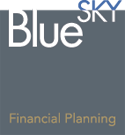A phrase I’ve often shared with clients is “the most important investment you can ever make is in yourself”. Whilst initially this may sound a little self centred, it’s important to understand the perspective that if you are not fit, healthy and fulfilled, it’s difficult to have a positive impact on those around you.
Warren Buffet, the legendary investor and one of the wealthiest people in the world, has attributed a significant part of his success to a simple, yet powerful choice: investing in oneself.
According to INC, this is what he shared with Good Morning America a few years back:

Whilst INC focuses on entrepreneurs and business leaders, Buffett’s timeless advice reminds us that this is applicable for anyone. I’ve taken his advice and broadened it out in this context.
Here are a few useful and practical tips:
1. Invest in continuous learning
Buffett’s philosophy revolves around the idea that knowledge is the ultimate asset. He famously spends a considerable part of his day reading, learning and staying informed about various industries and markets.
You can apply this principle to your life, but it doesn’t have to be about business. Exploring and learning keeps you alert, stimulated and, dare I say it, interesting!
2. Invest in your self-improvement
Investing in yourself is not limited to gaining knowledge; it also involves building self-confidence and continuously improving your skills. By investing in our personal growth, we develop the self-confidence, boldness and resilience to face obstacles head-on and overcome problems when we experience setbacks.
Investing in one’s own well-being is most definitely a form of self improvement that should be high on the agenda too.
3. Invest in knowing your strengths
In business, identifying and leveraging your strengths is critical because understanding your unique capabilities can help you focus on areas where you excel. There’s also a flip side to this: You must have the self-awareness to know what tasks to take on and what tasks that fall outside your expertise to delegate to others who can handle them better, thus optimising your time and efforts.
This made me smile from a personal point of view. I certainly know my limits when it comes to DIY at home!
4. Invest in a supportive network
Surrounding yourself with the right people is crucial for your success. Buffett is big on emphasizing the value of seeking out mentors, partners and friends who inspire and challenge you. This means building a network of like-minded peers and colleagues, industry experts, and experienced mentors who can offer valuable insights and guidance. A supportive network can provide a fresh perspective, innovative ideas and collaborative opportunities that drive your business forward.
This is also true in one’s personal life. Surround yourself with ‘radiators’ not ‘drainers’ is a great example. Ensure you surround yourself with positive people and those who add value to your life.
5. Invest in what you love
The biggest lesson on improving yourself stands the test of time… do what you love.
Buffett once said: “I get to work in a job that I love, but I have always worked at a job that I loved. I urge you to work in jobs that you love. I think you are out of your mind if you keep taking jobs that you don’t like because you think it will look good on your résumé”.
Doing what you love means understanding what’s important to you. It can be hobbies and community interests, not just work related. Understand what gives you your mojo. Be selective. Doing what you love is a major contributor to true happiness in life. It will pay endless emotional dividends.
We all know these tips don’t we, but it is amazing how many of us veer off track and get sidelined by our day-to-day demands!
Focus on you. It’s a powerful choice.
Best wishes,
Gary
Gary Neild B.Sc.Hons. DipIP PFA
Chief Executive Officer (CEO)

Risk warning
Please Note: This communication should not be read as giving specific advice regarding your personal circumstances. This would only be given following detailed assessment of your individual needs. The value of investments may fall as well as rise; you may get back less than invested. Past performance is not necessarily a guide to future returns.


